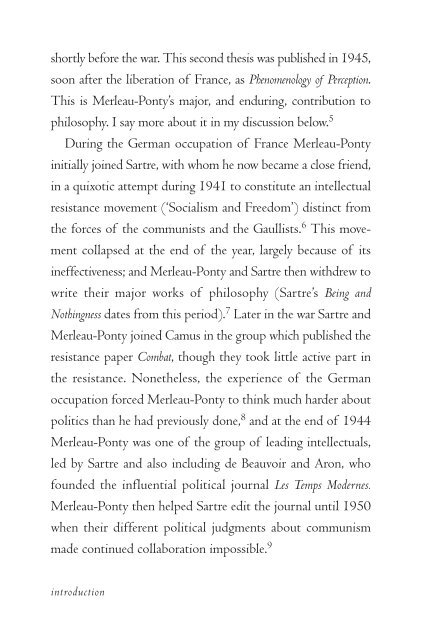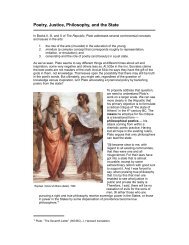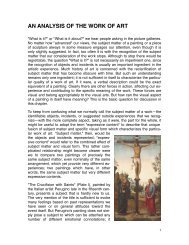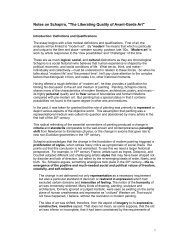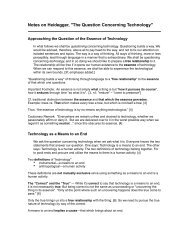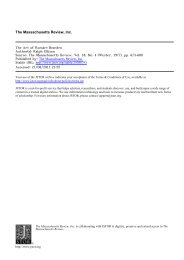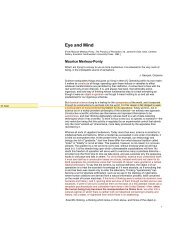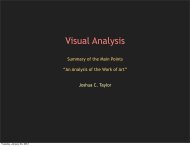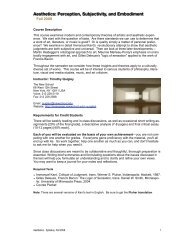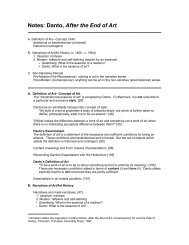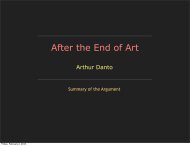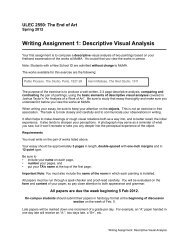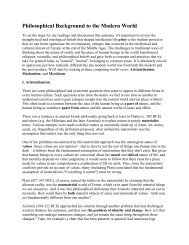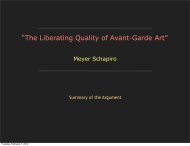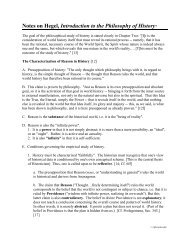Maurice Merleau-Ponty: The World of Perception - Timothy R. Quigley
Maurice Merleau-Ponty: The World of Perception - Timothy R. Quigley
Maurice Merleau-Ponty: The World of Perception - Timothy R. Quigley
Create successful ePaper yourself
Turn your PDF publications into a flip-book with our unique Google optimized e-Paper software.
shortly before the war. This second thesis was published in 1945,soon after the liberation <strong>of</strong> France, as Phenomenology <strong>of</strong> <strong>Perception</strong>.This is <strong>Merleau</strong>-<strong>Ponty</strong>’s major, and enduring, contribution tophilosophy. I say more about it in my discussion below. 5During the German occupation <strong>of</strong> France <strong>Merleau</strong>-<strong>Ponty</strong>initially joined Sartre, with whom he now became a close friend,in a quixotic attempt during 1941 to constitute an intellectualresistance movement (‘Socialism and Freedom’) distinct fromthe forces <strong>of</strong> the communists and the Gaullists. 6 This movementcollapsed at the end <strong>of</strong> the year, largely because <strong>of</strong> itsineffectiveness; and <strong>Merleau</strong>-<strong>Ponty</strong> and Sartre then withdrew towrite their major works <strong>of</strong> philosophy (Sartre’s Being andNothingness dates from this period). 7 Later in the war Sartre and<strong>Merleau</strong>-<strong>Ponty</strong> joined Camus in the group which published theresistance paper Combat, though they took little active part inthe resistance. Nonetheless, the experience <strong>of</strong> the Germanoccupation forced <strong>Merleau</strong>-<strong>Ponty</strong> to think much harder aboutpolitics than he had previously done, 8 and at the end <strong>of</strong> 1944<strong>Merleau</strong>-<strong>Ponty</strong> was one <strong>of</strong> the group <strong>of</strong> leading intellectuals,led by Sartre and also including de Beauvoir and Aron, wh<strong>of</strong>ounded the influential political journal Les Temps Modernes.<strong>Merleau</strong>-<strong>Ponty</strong> then helped Sartre edit the journal until 1950when their different political judgments about communismmade continued collaboration impossible. 9introduction


